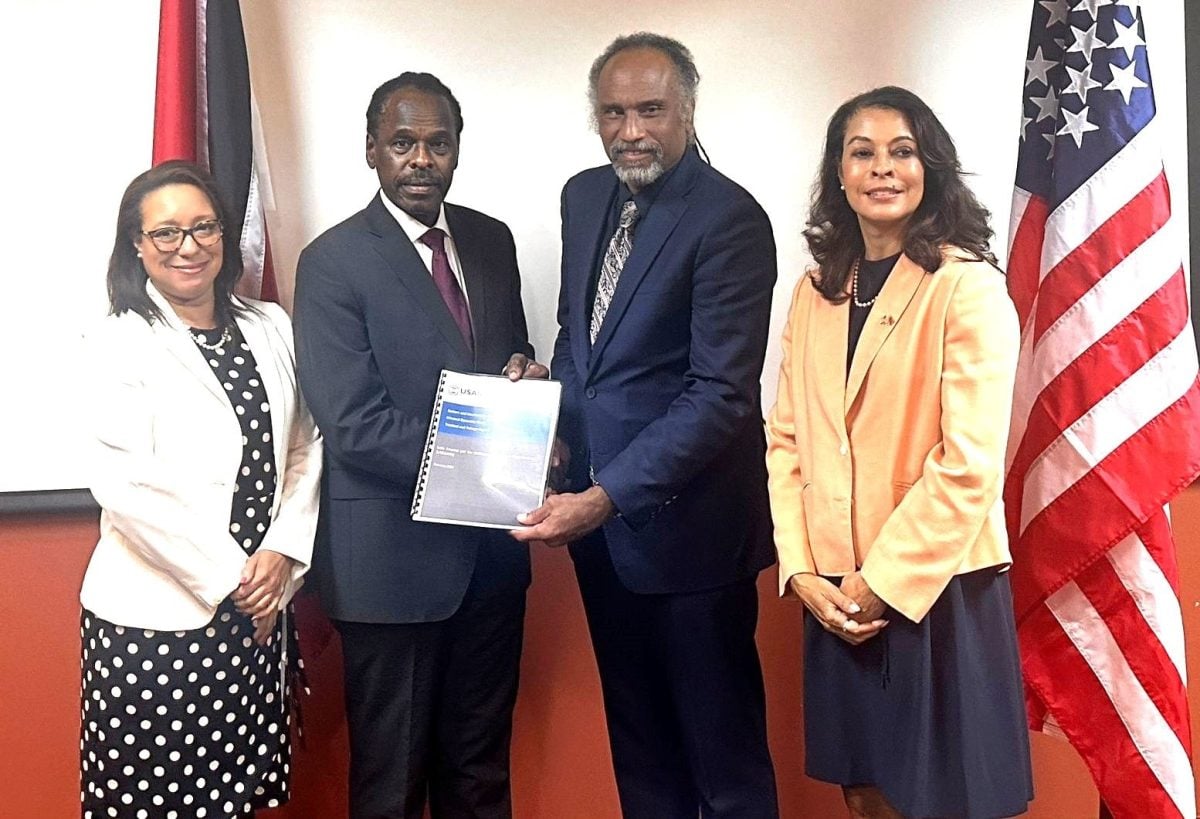(Trinidad Guardian) The Ministry of National Security says a new study by the United States Agency for International Development (USAID) on crime and criminality in Trinidad and Tobago, will play a crucial role in formulating strategies to combat criminal gangs in the country.
During a meeting on Monday, Minister of National Security Fitzgerald Hinds was presented with the USAID Criminal Dynamics Study for T&T, along with its key findings.
In a media release yesterday, the Ministry of National Security said the comprehensive study offers critical insights and recommendations necessary for developing effective strategies to combat gang-related activities.
It said the meeting, which took place at the ministry’s International Waterfront Complex, Port-of-Spain offices, saw Minister Hinds in discussions with United States Ambassador to Trinidad and Tobago Candace Bond and representatives from USAID.
The ministry said the event provided an opportunity for this country and the United States to strengthen their collaboration on shared crime and security concerns.
It said Ambassador Bond expressed optimism that the study would illuminate the root causes of gang activities in T&T, and aid in the implementation of interventions designed to counter, disrupt and dismantle gangs.
Bond emphasised the importance of the United States’ ongoing partnership with T&T, particularly through initiatives like the Caribbean Basin Security Initiative, recognising the Caribbean as the US’ “Third Border.”
“Other initiatives to combat crime and gang-related activism include the US Department of Commerce’s pause on licences for exporting weapons to non-state, civilian dealers, expected to reduce firearm exports to the region by 35 per cent, impacting high-risk countries including Trinidad and Tobago; US support for the Crime Gun Intelligence Unit (CGIU), fostering collaboration with Caricom IMPACS, the Bureau of Alcohol, Tobacco, Firearms and Explosives (ATF), Homeland Security Investigations (HSI), Customs and Border Protection (CBP), and the Bureau of Industry and Security (BIS); and Training for CGIU officers provided by agencies such as ATF, HSI, BIS, CBP, Interpol, the World Customs Organization (WCO), and the United Nations Office on Drugs and Crime (UNODC),” the ministry release said.
During the meeting, Mervyn Farroe, USAID’s Regional Representative for the Eastern and Southern Caribbean, reiterated its commitment to collaborating with the Ministry of National Security to address crime and violence, particularly through research supporting policy development.
Hinds welcomed the study, expressing gratitude to USAID and Ambassador Bond for their support in T&T’s fight against crime. He also underscored the importance of violence intervention programmes to bolster community resilience against crime and gangs.
Just this week, the TTPS arrested 22 people in connection with gang-related activities.

